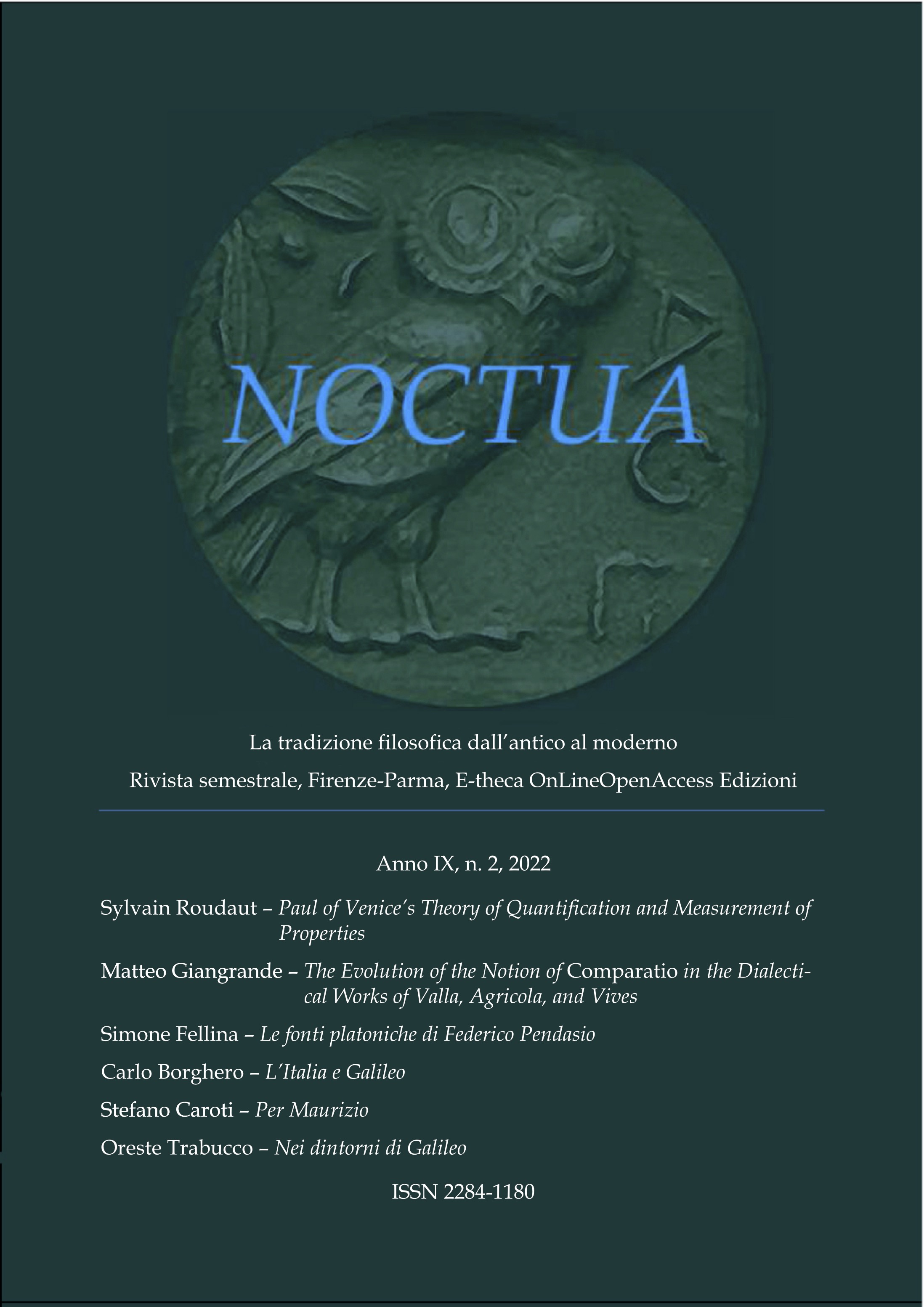The Evolution of the Notion of Comparatio in the Dialectical Works of Valla, Agricola, and Vives
DOI:
https://doi.org/10.14640/NoctuaIX6Parole chiave:
Juan Luis Vives, Rudolf Agricola, comparative method, inventio method, humanistic dialecticAbstract
This paper provides an account of the evolution of the notion of comparatio in the main dialectical works of Valla, Agricola, and Vives. It highlights the elements of continuity and discontinuity and sheds light on the original contributions of Vives’s treatment. In Valla, Agricola and Vives, the notion of comparatio characterizes: a) the locus of the relation to another in the inventio method; b) the cognitive act through which one can grasp the relationships of similarity and difference between concepts; c) the epistemic method for weighing the degree of plausibility of probable arguments. The paper also shows how Vives enhances the role of comparatio within dialectical art. Firstly, he attributes a pre-eminent position to the locus of the comparatio by virtue of the transversality of its application to all the other loci. Secondly, he identifies the explanation of the key concept of syllogism in the act of compering two sentences with a third. Finally, he finds the essence of the disputatio in the method of comparing equally probable contradictory arguments. This can rightly be considered an innovative element of the Vivesian dialectical treatment with respect to the most advanced European humanist movement of the first decades of the sixteenth century.
##submission.downloads##
Pubblicato
Fascicolo
Sezione
Licenza
Noctua pubblica contributi Diamond Open Access secondo i termini della licenza CC BY / Noctua publishes Diamond Open Access contributions under the terms of the CC BY license.







